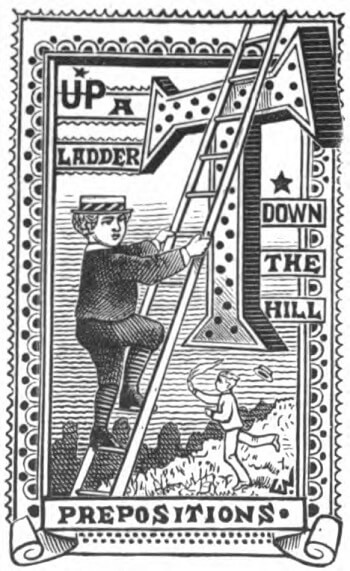Activity - Week 1: Find and Tally the Prepositions
Find and tally the prepositions in Serjeant Parsing's Verse.
THE FAIRY-RING.
- Beside a bluebell on the heath,
- Among the purple heather,
- A fairy lived, and crept beneath
- The leaves in windy weather.
- ***
- She drank the dewdrops from the stalk,
- See peeped into the flower;
- And then she went to take a walk,
- Or ride for half-an-hour.
- ***
- She rode upon a cricket's back,
- She came before the Queen,
- The fairy Queen, with all her court,
- Within the forest green.
- ***
- They had a dance upon the grass,
- Till larks began to sing;
- And where they danced, as all may know
- They left a fairy-ring.
- ***
- Oh, pretty fairies! why not stay,
- That we at you may peep?
- Why will you only dance and play
- When we are fast asleep?
Activity - Week 2: Complete the Sentences
Replace the blanks with appropriate prepositions, such as on, in, under, off, over, to, by, around, after, behind, or during.
SENTENCES
- The fox scampered ____________ the log.
- The little girl climbed ____________ the carousel.
- The robber hid ____________ the tree.
- We walked ____________ the bridge.
- They drove ____________ the bend in the road.
- She dashed ____________ the barn.
- He loved to eat cookies ____________ the table.
- The puppy trotted ____________ her dog house.
- The boy placed the toy ____________ the deck.
- He peeked ____________ the corner.
 Grammar-Land
Grammar-Land
Grammar-Land
Grammar-Land


 Grammar-Land
Grammar-Land
Grammar-Land
Grammar-Land
